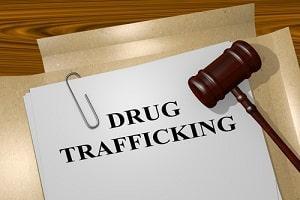Recent Blog Posts
If I Drive While Intoxicated, Can Others Be Held Accountable Too?

Since before the time you were legally able to get behind the wheel, you have likely been warned about the dangers of driving while intoxicated (DWI). Not only do drunk drivers place themselves at risk of injury, but they also put other drivers, passengers, and pedestrians in harm’s way. Intoxication levels are measured through one’s blood alcohol concentration (BAC), and in Texas, one’s BAC must be below 0.08 percent to be considered under the legal limit. But what happens to those who injure another party because they decided to get behind the wheel drunk? Is the blame solely on their decision to drink, or can other parties be held responsible as well?
Holiday Party Gone Wrong
Unfortunately, drunk driving incidents increase throughout the holiday season. This is often attributed to tipsy party guests making the decision to get behind the wheel rather than staying the night or calling a friend for a ride home. This instance hit close to home for a number of families this past Christmas Eve. Teenage brothers from Lewisville became victims to a drunk driver while walking home with friends on Dec. 24, 2020. Hayden, 18, and Grayson, 12, were struck by an out-of-control vehicle. Grayson made it out alive with serious injuries, but Hayden died at the scene. The driver was arrested on charges of intoxication manslaughter and intoxication assault. Depending on the details of the drunk driver’s night, there may have been additional parties to blame.
Can My Hands-Off Approach to Parenting Be Considered Neglect in Texas?

You may think that there is a clear line between child neglect and a more laissez-faire approach to parenting. When you imagine parents being charged with neglect and abandonment, you picture a child at home alone for days, struggling to care for himself or herself. The parents that you might picture in your head are risking their child’s safety to sustain their substance addiction. While this is, unfortunately, a common reality for those facing child neglect charges in Texas, others may be facing such charges based on their hands-off approach to caring for their child. Also known as “free-range parenting,” there is debate about whether or not this relaxed parenting style makes children more independent or places kids in harm’s way.
Free-Range Parenting Explained
In 2018, Utah passed a law that addressed different parenting styles and set a line for what is considered free-range parenting and what is considered neglect and abandonment. In the age of smartphones, parents have constant contact with their children, either through text message updates or actually tracking their child’s location. Many argue that this is a blessing and allows parents to fully protect their children in a way that was unavailable to previous generations. Others, however, believe that this constant contact and watchfulness can stunt kids’ individuality and ability to navigate the world on their own. Advocate Lenore Skenazy started the movement almost a decade ago after she allowed her 9-year-old son to ride the New York City subway by himself. Since then, Utah passed the country’s first law to legalize this form of parenting to give children the freedom to do things on their own, with their parents’ permission. This includes activities such as exploring a playground, riding a bike to school, or allowing your child to remain home alone at a young age without a parent’s supervision. Some view this type of parenting as a nod to “the olden days” while others see it as the failure to protect your child. Texas does not have such a law in place, leaving some of these more radically viewed parental decisions up to the court’s discretion.
Texas Man Sentenced to Prison for Illegally Selling Rifle in Shooting

Weapon laws have been under scrutiny for the past decade, as mass shootings have increased in the United States. Those on the left-wing feel as if guns should be more severely regulated, if allowed at all, whereas those on the right-wing feel strongly about maintaining their Second Amendment rights, arguing that they feel safer with a gun in their hands. Texas is regarded as one of the more conservative states in the country, and the state’s gun rights follow suit. Despite having more relaxed gun laws, the state still has regulations on how weapons can be sold and who is able to purchase them. Because of these regulations, one man’s hobby landed him two years in prison.
An Illegal Sale Leads to Disaster
Marcus Braziel was sentenced to two years behind bars in a Lubbock, TX courtroom at the beginning of the new year. Inside the courtroom, Sharon Griffith showed a picture of her son, a man who was killed at a mass shooting in Midland and Odessa in August 2019. Though Braziel was not the man who shot Griffith’s son, the gunman used an assault rifle that was sold to him by Braziel back in 2016. Braziel admitted to dealing and manufacturing firearms without a license in addition to filing false tax returns.
University Drug Trafficking Ring Busted in Austin, Texas

Young, college-age kids are notorious for pushing the envelope. Whether that involves going against their parents’ wishes, drinking underage, or trying illegal substances, one defiant action can quickly lead to a series of poor decisions. Drinking under the age of 21 can also result in a driving while intoxicated (DWI) charge depending on the circumstances, and trying a single drug can often result in a life riddled by drug crimes. Those involved in drug rings recognize young adults’ willingness to try drugs and the likelihood of them getting hooked on these substances. With this in mind, many will target college-age kids to create regular customers of their products, many of which are not the drug that they think they are.
UT Students at Risk
In early December, authorities busted a drug trafficking operation that targeted the University of Texas (UT) students. At least 13 people were charged in connection with the scheme, including current and former UT students. Authorities reported that the drug ring sold counterfeit prescription drugs, claimed to be Adderall and Xanax, to students that were laced with methamphetamine and fentanyl. Adderall and Xanax are regulated and legitimate prescription medications that many students will purchase in the hopes that they will improve their studying and focus before major assignments or exams. Purchasing these drugs without a prescription is a crime in and of itself, but finding out that the regulated, FDA-approved medication is laced with dangerous substances was not what the students signed up for.
Can I Be Charged for Inappropriate Virtual Student-Teacher Conduct?

For the past two academic semesters, students across the country have alternated between in-person and virtual learning formats in an attempt to keep students and their families safe from contracting and spreading the COVID-19 virus. Each state was presented with the ability to dictate their educational systems’ future for the fall semester, some returning to the classroom, others remaining fully remote, and even more states selecting a hybrid platform. Texas Governor Greg Abbott and Texas Education Commissioner Mike Morath required all schools in the state to open their doors to those who would like to return to the classroom while also being prepared for remote teaching for students who opt to remain at home.
These unprecedented changes to Texas classrooms have made things more challenging for teachers, students, and their families. Additionally, the dual academic options have made regulating students’ progress and teachers’ work increasingly difficult. As is the unfortunate case each year, inappropriate teacher-student relationships can continue to occur during this unique academic year. Teachers and students have an even greater virtual connection than ever before, making it easier for such relationships—and false accusations—to flourish.
Voter Fraud Allegations Led to Alleged Assault by Former Officer

Since the conclusion of voting for the 2020 presidential election in early November, many Americans have questioned the validity of the results. The majority of suspicions come from conservative voters, and as Texas is dubbed a red state, many Texas legislators have voiced their doubts. This past Monday, the Electoral College affirmed former Vice President Joe Biden’s triumph in the 2020 election, but the 38 electors from the state of Texas provided their votes for President Donald Trump and encouraged swing state legislatures to appoint their own electors. Texas lawmakers are not the only ones taking charge in regards to voter fraud allegations, as one ex-cop took matters into his own hands.
Former Houston Police Captain Arrested
This past Tuesday, a former Houston police captain was arrested for allegedly running an air-conditioner repairman off the road and threatening him at gunpoint. In response to an unsubstantiated voter-fraud conspiracy theory, suspect Mark Anthony Aguirre was involved in a project to find evidence of voter fraud in Harris County. Aguirre was paid $266,400 by activist Steven Hotze, leader of the group Liberty Center for God and Country, to help the group investigate voter fraud in the county. According to Aguirre, he threatened a man who he believed was in charge of a slew of forged election ballots. At this time, there is no evidence that the man who Aguirre threatened was involved in a fraud scheme of any kind.
Texas State Police Move to Dallas to Combat Rise in Violent Crime

It is no secret that violent crime is more prevalent in urban areas, and Dallas is no exception. After seven fatal shootings occurred in the city in mid-November, Gov. Greg Abbott saw an urgent need for additional protection for Dallas residents. The city has surpassed its homicide count from 2019, with 220 homicides recorded in this year alone. In order to keep this number from rising as the year comes to a close, Governor Abbott has sent state police into the city for added protection. This is not the first time the governor has opted for these additional measures, and due to past experiences, not all Dallas residents agree with the governor’s tactic for combating crime.
Operation D-Town
In June 2019, Dallas saw a similar spike in murders and violent crimes, and in response, Gov. Abbott deployed the Texas Department of Public Safety (DPS) into the city to assist the Dallas Police Department in their policing efforts. According to reports from Dallas police, the targeted areas saw a significant drop in violent crimes just two months into the operation. Even with the reduction in crime, a number of residents and community officials claimed that DPS did more harm than good.
What New Legislation Is on the Horizon in 2021 in Texas?

As the last few months of 2020 begin to come to a close, everyone’s sights are set on 2021. This year has been historic, to say the least, with an international pandemic, racial protests across the United States, and a presidential election all happening in a matter of 12 months. With an eventful year like this one, it is no wonder that everyone is looking forward, Texas lawmakers included. The 87th Texas Legislature will not begin their next session until January; however, state lawmakers are already filing their legislative proposals for 2021, some of which touch on criminal law.
Looking Ahead With New Laws
On just the first day in which Texas lawmakers were able to file legislation, over 450 bills were filed in the House and Senate. According to reports from the Texas Tribune, an anticipated 1,000+ bills will be submitted during the legislative session, but only a few will be seen by the governor’s eyes. This session will be especially tough for lawmakers as COVID-19 leaves billions of dollars of shortfalls in its wake. Despite this, Texas legislators have forged ahead by proposing the following notable bills:
Can a Traffic Stop Turn Into an Unwarranted Vehicle Search in Texas?

According to the Fourth Amendment, Americans have the right to be secure in their persons, houses, papers, and effects, against unreasonable searches and seizures. In other words, if an officer shows up at your home without a search warrant, or pulls you over and asks to take a look in your car, you are legally allowed to deny the search until a proper search warrant is present. A recent Texas case, however, may put the limits of this protection in question for those individuals who are facing criminal charges.
Stopped for Speeding, Arrested for Drugs
In early November, two Austin residents were pulled over for a routine traffic stop after they were allegedly found speeding on US HWY 87. According to reports from local station San Angelo LIVE, couple Andrew Garlinghouse and Lee French-Todd provided their driver’s licenses to the police officer upon request. After noting Garlinghouse was acting “suspicious and very nervous” during the traffic stop, the officer was denied his request to search the vehicle. The law enforcement officer suspected additional criminal activity going on due to Garlinghouse’s refusal and visible discomfort, so he called a K-9 unit to the scene to check the vehicle for illicit drugs. During the search, the officer recovered several bags of methamphetamine, small baggies, a scale, Adderall, and Xanax from the couple’s vehicle. The two individuals were then arrested on multiple drug charges.
Will This Year’s Decrease in Texas DWI Arrests Change as Bars Reopen?

College Station, the home to Texas A&M University, has seen a significant decrease in the number of driving while intoxicated (DWI) arrests in the past year. As 2020 has been a unique year in the history of the United States, these reduced numbers may be attributed to the restrictions enacted on Texans since COVID-19 began to surge. According to the Texas Department of Transportation, more than 800 drivers across the state were killed in accidents involving DWI. While this number may not seem particularly significant in such a large state, it only accounts for those who were in fatal accidents, not those arrested or injured. If you are arrested for DWI, it is important to know the severity of the criminal charges that you may face and where to turn for legal guidance.
A Texas Town Considers the Implications of Reopening
In a KBTX news report from October 29, Police Officer Tristen Lopez from College Station, Texas notes an approximate 25 percent decrease in DWI arrests this past year. According to the report, College Station police have made 227 DWI-related arrests this year, compared to 303 arrests in 2019 by this same date. The same is true of DWI-related crashes in the area. COVID-19 restrictions in the state of Texas have left local bars closed for months in an attempt to reduce the spread of the virus. As of October 14, however, county governments were given the option of allowing their local bars to reopen at 50 percent capacity moving forward. Though these bars may reopen, they are still required to stop selling alcohol at 11 p.m.; the same is not true of restaurants, creating a gray area on which many bars and restaurants can tread. Officer Lopez connected the reduced DWI numbers to local bar closures and noted that the trend will likely change now that the bars have reopened.
















